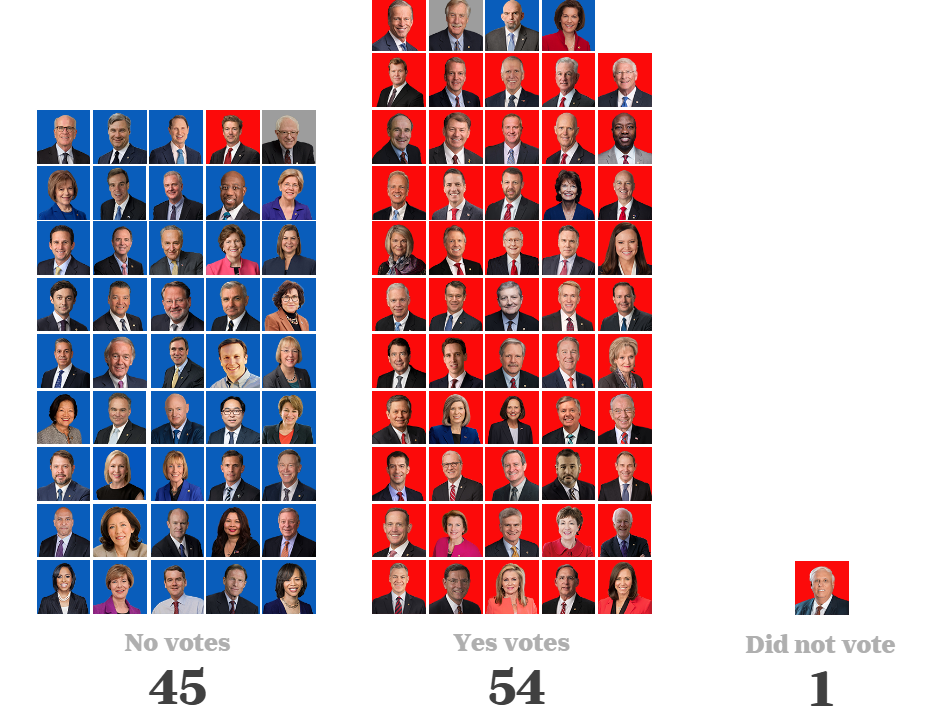By Allison Peck

Washington D.C. - Today in Washington, the Senate again failed to advance a stopgap funding bill meant to reopen the federal government. For the 13th time, the measure fell short—ensuring the shutdown continues.
In a vote that needed 60 to pass, the Senate voted 54-45-1, keeping the government shutdown.
The legislation would have extended government funding and kept agencies operating until November 21. It had already passed the House and been sent to the Senate, but Democrats blocked it today, continuing their strategy even as the impacts of the shutdown become more acute.
The shutdown began on October 1, 2025, and with today being Day 28, it has now become the second-longest government shutdown in U.S. history — surpassing the 21-day impasse of December 1995 to January 1996. The record remains the 35-day shutdown from December 2018 to January 2019.
With each day that passes, the effects are mounting: thousands of federal employees are working without pay or are furloughed; vital services face interruptions; and major deadlines loom, including the looming cutoff of food assistance benefits for millions and the open enrollment window for health insurance under the Affordable Care Act.
On the Senate floor, Senate Majority Leader John Thune (R-S.D.) implored Democrats to provide the extra votes needed and pass the bill immediately, calling it the straightforward way to restore funding and avoid further damage.
On the other side, Senate Minority Leader Chuck Schumer (D-N.Y.) and other Democratic lawmakers held firm, arguing the proposed bill lacked commitments on key issues such as healthcare subsidies, housing support and other domestic programs — areas they say cannot be ignored if government funding is to be restored responsibly.
Interestingly, though the shutdown drags on and public frustration is rising, recent polling shows somewhat resilient approval for key Republican figures. A Reuters/Ipsos poll found that President Donald Trump’s approval rating ticked up to 42 percent, up two points since earlier in the month, even as Americans place more blame on Republican lawmakers than Democrats for the shutdown. Meanwhile, another poll shows 37 percent of registered voters approve of how Republicans in Congress are doing their job — the highest level that party has reached in recent years.
As of now, no new roadmap has been announced. Republicans have indicated they may pursue narrower “carve-out” bills to pay certain federal workers or continue programs such as SNAP, but they maintain that the full-scale reopening remains the better option.
Meanwhile, Americans — especially federal employees and those relying on government assistance — are bracing for further uncertainty. With major program deadlines, funding cliffs and ripple effects across states.
Sources: Reuters, CBS News, Bloomberg Government, Fox News, ABC News, New York Post, Time Magazine




